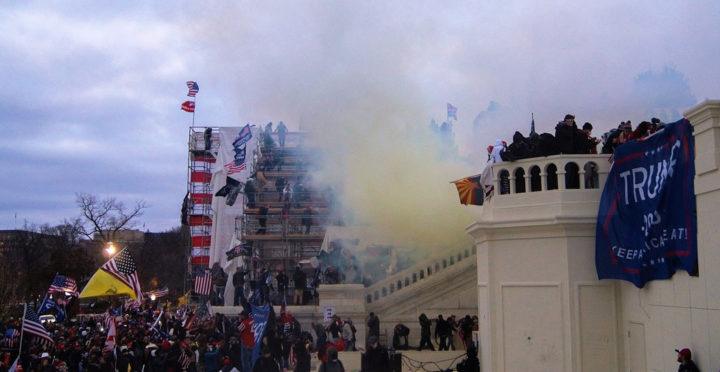In the past few months, I have written 13 articles on social issues that have arisen from what I call the culture of the “White-West.” Then, January 6th happened. The Hill published an article a few days later titled “Pelosi says rioters chose their ‘whiteness’ over democracy,” and she is right, but no one wants to address the race issue and the mainstream prefers to keep it a political matter. The White moto is relatively simple and has been the same for centuries: to expand and maintain power through violence. Democracy, freedom, and the pursuit of happiness have been used as sophisticated justification for the use of violence in all its forms.
In reality, the way to address the issue of whiteness is to remove violence as a possible method of development. If you look why Twitter chose to close Trump’s account, it was to do “everything possible to stop the spread of violence” (NYTimes, Jan 16, “Inside Twitter’s Decision to Cut Off Trump”). After MLK Jr. Day, we are reminded of King’s legacy and the unbelievable achievement of the Civil Rights Movement in choosing nonviolence as a tool to dismantle institutionalized racial segregation and discrimination.
Today, we offer a new moto for our White friends:” “Do everything possible to stop the spread of violence.” A Civil White Movement is needed to transform this culture and take responsibility for centuries of colonialism, slavery, segregation, incarceration, militarism and poverty. We can start by repairing twice over the damage already done: we will no longer justify violence and we will continue to educate, clarify, raise awareness, empower, and humanize. We will continue adding to the demands for public policies that protect, prevent and repair. At the economical level, we will support Universal Basic Income to ease and reduce the economical violence generated by the concentration of capital in very few hands. Reparations for slavery has been fiercely discussed in the United States since Union Army Gen. William Tecumseh Sherman promised 40 acres and a mule to 4 million freed slaves in 1865; it is a promise that is long overdue. At the political level, we need to expand voting rights as far and wide as possible, making our democracy as direct and inclusive as possible and making sure that minorities and people of color have access to all forms of power. In the same way we have used violence against each other, we have been violent against our own environment and we need to do everything possible to slow climate change. We will need to support the treaty to ban nuclear weapons, to reduce our enormous military budgets, to demilitarize the police, and to create institutions that focus on doing everything possible to stop the spread of violence.
These proposals are great and valid but they are not enough. Something also needs to happen at the personal level, not just at the social. Change needs to happen in the depths of our consciousness and within our hearts. How do I respond to violence? Do I really believe that violence is not a solution? Violence manifests in many forms — hate, revenge, imposing your beliefs or your way of life, discrimination, the economic exploitation of people. In conclusion, we can all benefit by meditating on the following recommendation from “The Path” section of Silo’s Message:
“Learn to treat others in the way that you want to be treated.
Learn to surpass pain and suffering in yourself, in those close to you, and in human society.
Learn to resist the violence that is within you and outside of you.”






